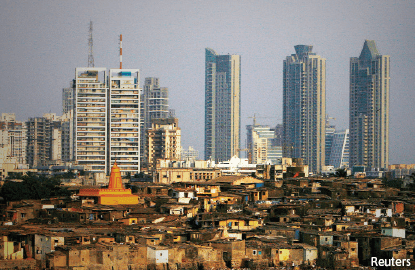
This article first appeared in Capital, The Edge Malaysia Weekly, on September 28 - October 4, 2015.

AMUNDI Asset Management global chief investment officer (CIO) Pascal Blanque does not buy the idea that global growth is falling off the cliff. On the contrary, he opines that there is good news now despite the gloom and doom in the global economy that has been grabbing the headlines in recent months.
France-based Amundi Asset Management manages funds amounting to US$1 trillion (RM4.39 trillion) globally.
“At the global level, there are supporting factors. [Firstly] the US Federal Reserve (Feds) will not embark on a savage monetary normalisation. Secondly, we will get the support of ample liquidity coming from Europe and Japan, thanks to quantitative easing measures. This means that we will continue to live with a huge pool of excess liquidity, remunerated at close to zero specifically in the West.”
“Searching for yield is a lasting feature and a natural destination of this pool of liquidity is to the emerging economies. This is good news,” Blanque says during a recent interview with The Edge.
He is not worried about global growth and opines that the slowdown in China is signalling the world that there is a real reassessment of fundamentals across the emerging economies.
He adds that the fall in commodity prices is also positive news for some economies as it has caused purchasing power redistribution across the globe. India, for one, has become a favourite among investing communities in recent times as it benefits from low commodity prices, while its commitment to reforms makes it attractive.

As for Europe, Amundi Asset Management has remained positive on its assets over the last two years ad there is still economic growth there, albeit at low levels, and sound corporates. It also takes the view that the region will benefit from aggressive monetary policy by the European Central Bank.
Blanque adds that investors have adjusted to expectations of low growth rates in the West, but not yet in the emerging economies.
“We know what’s the new normal in the West: low growth, low interest rates, and so on. But in the emerging space, we are in the process of a global remapping of emerging economies. This started two years ago, where investors are basically reassessing country by country, looking at the fundamental picture and asking themselves questions like: ‘What is the growth potential of this country?’, ‘Are they running current account deficits?’, ‘How is it financed?’ ‘Is the currency undervalued or overvalued?’”
While Amundi Asset Management is taking a more cautious stance on emerging markets now, it is nevertheless still on the lookout for entry points on a discriminatory basis, stressing that the focus is on endogenous growth.
Blanque, who was awarded the European CIO of the Year 2013 by Funds Europe Magazine, says one of the themes moving into next year is that funds will consider re-entering the emerging space as growth there remains stronger compared with the West, but stresses that fund inflows to emerging markets will be on a discriminatory basis. Investors have to understand that the growth rate seen over the last 10 years will not be repeated, he adds.
Sectors like technology, consumption and infrastructure in Asia will likely benefit from investors’ move to re-focus on endogenous and structural components of growth theme as they seek to re-enter emerging markets, he says.
“Structural reforms in many Asian countries translates into investment and into infrastructure. There is room to deliver on that. This is a common feature for many Asian countries and this has nothing to do with the foreign exchange or what happens to demand in the West, that’s what I mean by endogenous growth.”
“If I’m buying a growth potential in Asia, I’m buying the emergence of endogenous growth, domestic demand engines, technology sector, rising consumption and infrastructure. As a long-term investor, this is what I am ready to buy into the next five to 10 years to come,” he explains.
However, Blanque says volatility will still persist for some time, simply because global markets are coming from an abnormally low volatility environment. He adds that volatility will continue as long as there is a process of price discovery and while the adjustments are not completed.
“In some emerging economies, I don’t think the adjustment of the currencies has been completed. I think that there is further depreciation of currency and I will ask for higher risk premium in order to be protected from the risk of further depreciation,” he says.

Nevertheless, the veteran fund manager adds that there are pockets of opportunities to invest after the recent crash in stock prices and bonds. As Blanque does not buy the idea that global growth is falling off a cliff, he remains confident about the prospects of European assets and even that of some emerging countries.
He believes prices will stabilise eventually and investors will realise that the world is not in the 1994 or 1997 financial crises.
“Since we have a big pool of money searching for yield, we will see at some point inflows back in some areas but with a distinguishing feature this time. The winners will take it all. This is a difference regarding emerging economies.”
“It used to be that by just being an emerging economy, it was enough to be a winner because emerging economies were part of the index, but not anymore. There will be an increasing gap between the winners and the rest. It’s already the case to a certain extent. Look at the spread between the enthusiasm of the markets for India and the rest of the emerging markets. It’s a new element,” explains Blanque.
Save by subscribing to us for your print and/or digital copy.
P/S: The Edge is also available on Apple's AppStore and Androids' Google Play.